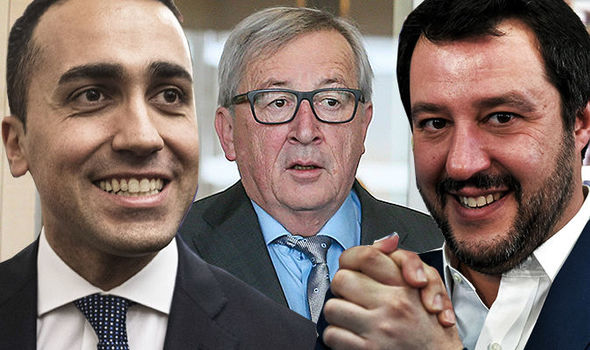By Beatrice Guzzardi, Skye Redman, Valentina Cipriani, and Alessia Manzoni
On March 4, Italy held parliamentary elections. In an unexpected turn of events the two main parties that ruled Italy for decades have collapsed, leaving space for the populist Five Star Movement (M5S) and the nationalist and xenophobic League— formerly known as the Northern League. Both the center-left Democratic Party (PD), the outgoing government with Paolo Gentiloni as Prime Minister and Matteo Renzi as the leader of the party, and the center-right Forza Italia, Silvio Berlusconi’s kingdom, lost several seats to the League and Five Stars.
In a map published by Corriere della Sera, Italy’s first newspaper, the South, the center-east and the islands — Sardinia and Sicily — showed a preference for the Five Star Movement, while the North and the Rome region saw a majority for Forza Italia.
The Five Star Movement does not declare a specific political orientation: it describes itself as neither left- or right-wing. It was founded in 2009 by comedian Beppe Grillo as an anti-system movement, with a series of rallies called “F**k Off Days”. Grillo never ran for election and Five Star’s leader is 31-year-old Luigi Di Maio. Among the party’s electoral promises is a universal basic income for all Italian citizens.
In the North of Italy, which is traditionally right leaning, the League prevailed. What is surprising is the fact that it has even overtaken Silvio Berlusconi’s party. The League was founded in 1991 as a separatist political party, campaigning for the independence of the North of Italy. Since then it has changed its name, dropping any mention of regional divisions, and shifted its criticism from Southern Italians to immigrants coming from Africa and the Middle East. Its slogan during the election campaign has been ‘Italians first’ and the party has promised to expel illegal immigrants from the country, especially those convicted of crime.
The party leader Matteo Salvini says he is a big fan of Donald Trump, and met him in Philadelphia in 2016 during Trump’s presidential campaign. Steve Bannon, former executive chairman of Breitbart News and Trump’s former White House Chief Strategist, went to Italy two days before the election to support populist and right-wing parties. Bannon said he was “intrigued” by the League and the Five Start Movement for their anti-immigration and Eurosceptic views. He also called the election result his “ultimate dream”; the Italian version of a Trump vote. The League won 20 per cent of the votes in Tuscany, which has traditionally been a left-wing region. “This is equivalent to Wisconsin going to Trump,” Bannon said in an interview with Swiss newspaper Weltwoche.
At the moment it is still unclear which party will govern. Both Five Star and the League have claimed the right to form a government and both leaders have announced that they are open to coalition talks with other parties. In reality neither of them has won enough seats to obtain an absolute majority in Parliament, which is effectively “hung”. Many Italian newspapers have described the elections as an enigma.
As a parliamentary republic, Italy does not elect their government during the elections, only their parliamentary representatives. Those representatives then give a vote of confidence to the government, which is appointed by the President of the Republic. While the very last seats are being assigned, the center-right coalition made up of the League and Silvio Berlusconi’s Forza Italia is missing approximately 50 seats in the lower chamber (Chamber of Deputies) and 30 in the upper chamber (Senate) to obtain an absolute majority. Five Star are even further away – they need about 90 extra Deputies and 40 extra Senators.
According to their resigning leader Matteo Renzi, the leftist Democratic Party are determined not to enter any government led by either the League or Five Star. “We’ll stay in the opposition,” he said in a press conference on Monday. This leaves Italy in a very complicated situation. A “grand coalition” between Five Star and the League seems even harder to be agreed upon due to the far-right views of Salvini’s party.
It is difficult to predict what will happen now, but much lies in the hands of Sergio Mattarella, the President of the Republic. Mainly a representative figure in normal circumstances, he now has the power to decide the person in charge of the negotiations.
On March 23 the Parliament will gather for the first time and the talks to give Italy a new government will officially begin. It may take weeks to reach an agreement – and if that does not happen, the possibility of a second election should not be completely ruled out.


[…] via Geopolitalk: Chaos In Italy’s Elections […]
LikeLike